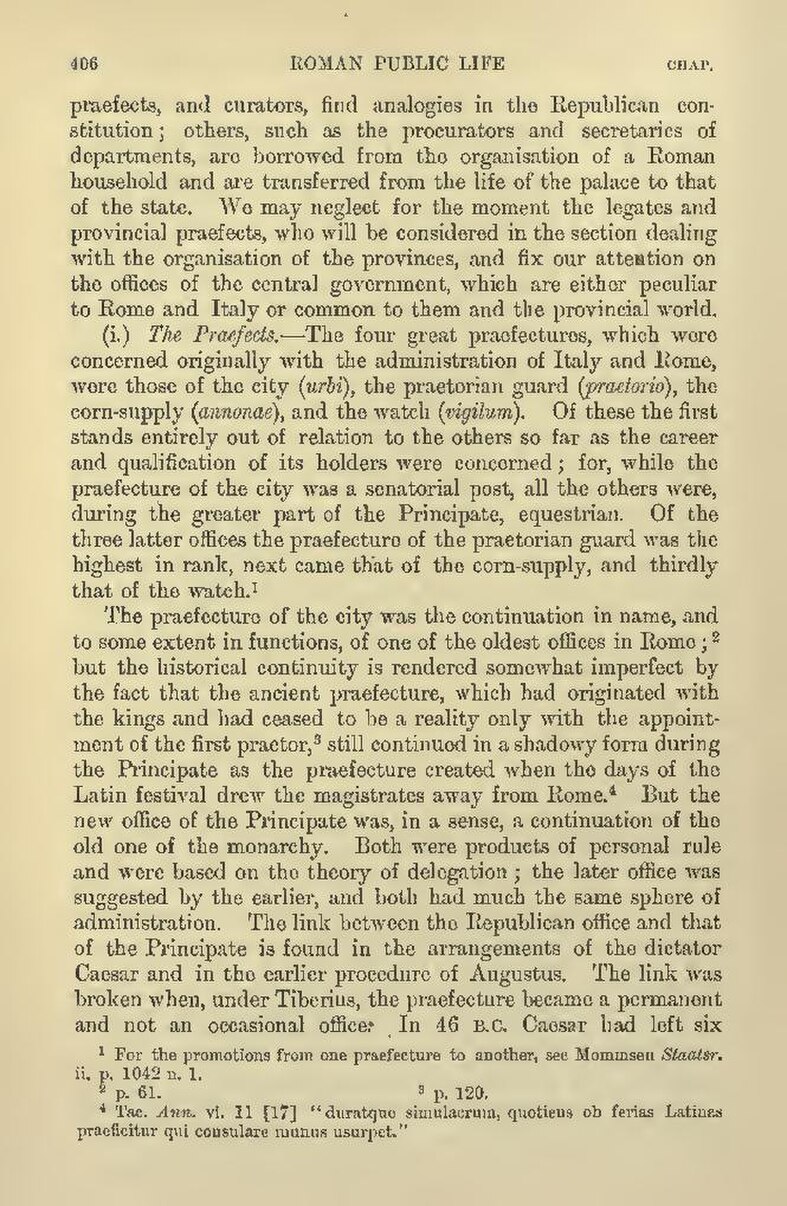praefects, and curators, find analogies in the Republican constitution; others, such as the procurators and secretaries of departments, are borrowed from the organisation of a Roman household and are transferred from the life of the palace to that of the state. We may neglect for the moment the legates and provincial praefects, who will be considered in the section dealing with the organisation of the provinces, and fix our attention on the offices of the central government, which are either peculiar to Rome and Italy or common to them and the provincial world.
(i.) The Praefects.—The four great praefectures, which were concerned originally with the administration of Italy and Rome, were those of the city (urbi), the praetorian guard (praetorio), the corn-supply (annonae), and the watch (vigilum). Of these the first stands entirely out of relation to the others so far as the career and qualification of its holders were concerned; for, while the praefecture of the city was a senatorial post, all the others were, during the greater part of the Principate, equestrian. Of the three latter offices the praefecture of the praetorian guard was the highest in rank, next came that of the corn-supply, and thirdly that of the watch.[1]
The praefecture of the city was the continuation in name, and to some extent in functions, of one of the oldest offices in Rome;[2] but the historical continuity is rendered somewhat imperfect by the fact that the ancient praefecture, which had originated with the kings and had ceased to be a reality only with the appointment of the first praetor,[3] still continued in a shadowy form during the Principate as the praefecture created when the days of the Latin festival drew the magistrates away from Rome.[4] But the new office of the Principate was, in a sense, a continuation of the old one of the monarchy. Both were products of personal rule and were based on the theory of delegation; the later office was suggested by the earlier, and both had much the same sphere of administration. The link between the Republican office and that of the Principate is found in the arrangements of the dictator Caesar and in the earlier procedure of Augustus. The link was broken when, under Tiberius, the praefecture became a permanent and not an occasional office. In 46 B.C. Caesar had left six"duratque simulacrum, quotiens ob ferias Latinas praeficitur qui consulare munus usurpet."]
